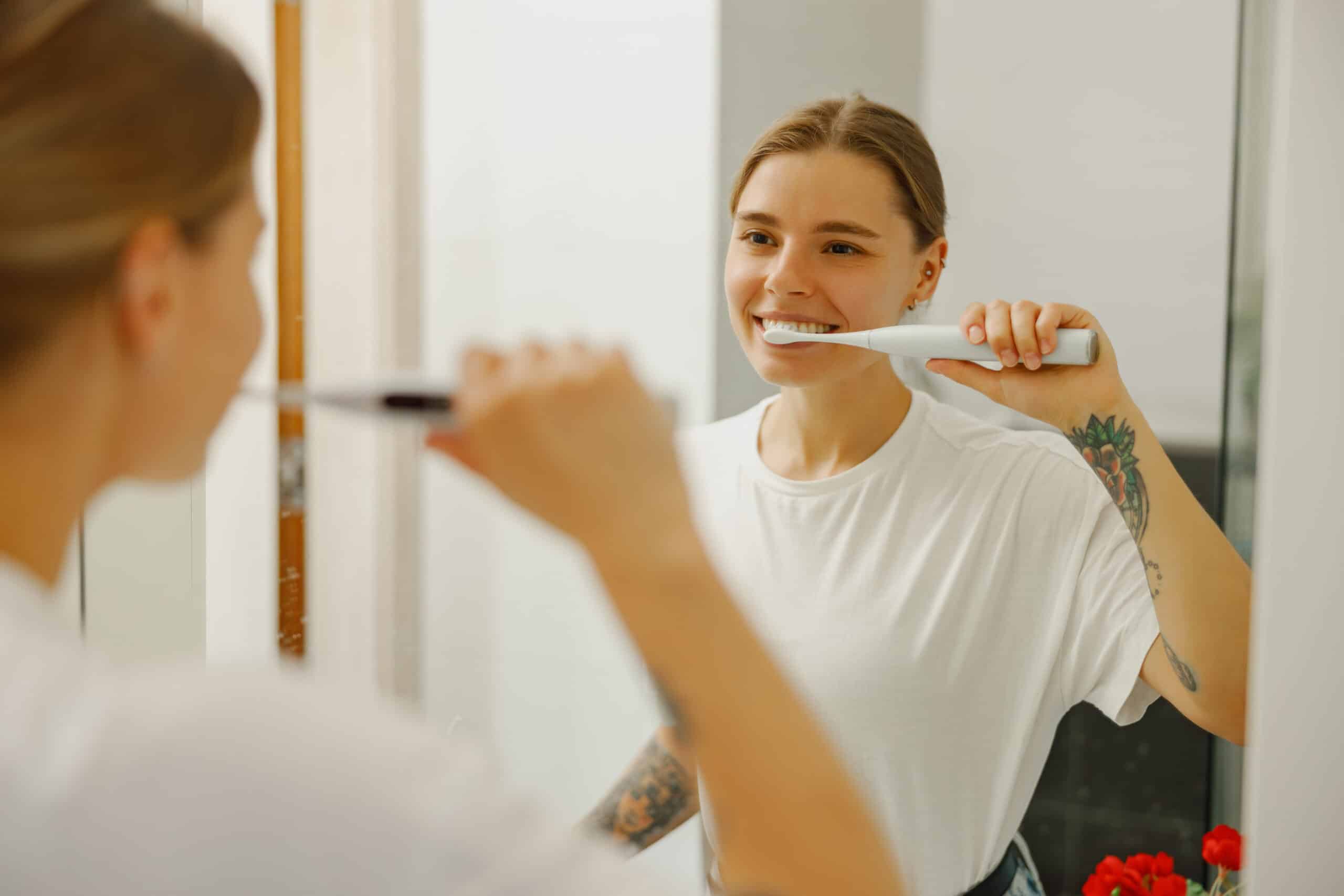So 9/10 dentists agree on a certain brand of toothpaste, huh? Looks like a no-brainer. But these days, 9/10 dentists seem to agree with just about every brand in the aisle. So how do you choose the right one? Well, we can’t comment on whether bubble-gum flavour is superior to peppermint, but we can certainly give you the scoop on fluoride, de-sensitizing, whitening and tartar control, so you can decide which is right for you.
Most toothpastes share a few fundamental ingredients. First you have thickeners and humectants. They give the paste its texture and keep it from drying out in the tube. Detergents such as lauryl sulfate are what make the suds. Don’t worry, these aren’t exactly the same chemicals as the ones in your bottle of Tide. Most toothpastes have abrasives as well, little pieces of rough substances that help polish your teeth and scrape away bacteria. In some brands, these abrasives are more noticeable — you can actually feel them in your mouth.
But there are also a few ingredients and attributes that make each type of toothpaste special…
Your Friend Fluoride
One of the major reasons people have much stronger teeth today than they did 50 years ago is fluoride. Introduced to drinking water treatment in most of North America during the middle of the 20th century, this useful chemical helps strengthen our teeth, making them more resistant to disease and decay. Many toothpastes have fluoride added as well, and we recommend that you choose one that does. Even if your community fluoridates its water like Toronto, the extra boost of fluoride toothpaste will still benefit your teeth.
Toothpaste Making your Pearly Whites Whiter
“Whitening” is something that many toothpastes proudly offer. Contrary to popular belief, this type does not bleach your teeth. Rather, they have more abrasives than standard brands. You’ll probably notice that whitening toothpastes feel a bit rougher or grittier in your mouth. While you may worry this could damage your teeth’s outer layer of enamel, studies indicate they’re no more damaging than regular brands (which is to say, not at all). But if you have thinner enamel, you may want to try a gentler toothpaste.
Don’t Be So Sensitive
Some people’s teeth happen to be more sensitive to textures or temperatures. There are a few reasons for this, which we discussed in an earlier post. If you find yourself to be one of these sensitive souls, you might want to try a de-sensitizing toothpaste. They usually contain a substance that helps block the nerve pathways inside your teeth such as strontium chloride or potassium nitrate. Don’t expect instant results, though! It may take weeks or even more than a month of regular use before you begin to notice an effect. Of course, if your discomfort is getting so serious that even de-sensitizing toothpastes don’t work, then it may be time to book an appointment with your dentist.
Trouble with Tartar We Have A Toothpaste For That
When plaque stays on your teeth for a while, it hardens into tartar/calculus. Not only can this be unsightly, it can also lead to gum disease and tooth decay. Tartar control toothpastes make sure this doesn’t happen, and help battle the tartar that may have already built up. There are a few chemicals that fight this good fight, including zinc citrate and pyrophosphates, and many toothpastes combine several for maximum effect. Some even throw in simple antibiotics for good measure.
So is there an end-all-be-all super toothpaste? Not exactly. There are strengths to each, and it’s important to understand your family’s dental needs when buying one. Your dentist will know your teeth, perhaps even better than you, so he or she can give a good recommendation. Whatever you choose, make sure it’s endorsed by the Canadian or American Dental Associations, and try to pick one that includes fluoride. Now get brushing.








